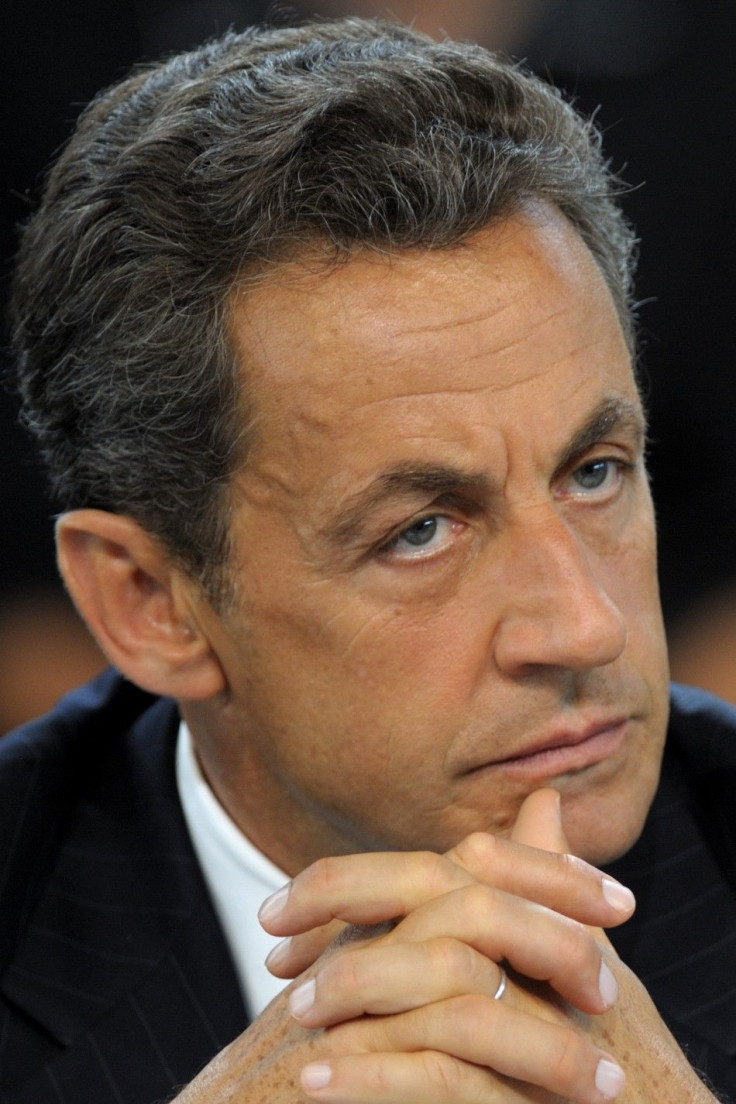France's Sarkozy Facing Stiff Obstacles in 2012 Re-Election Bid

Nicholas Sarkozy, the center-right president of France, faces an uphill struggle for re-election next year after four tumultuous years at the Elysée Palace.
Sarkozy, who has attempted to establish his credentials as a 'global statesman' by, among other things, aggressively pushing for a NATO bombing campaign in Libya, remains controversial and unpopular in France.
Most recently, a journalist alleged that during his successful 2007 election campaign, Sarkozy received a substantial (and illegal) financial contribution from Liliane Bettencourt, the wealthiest woman in France.
The French political season has already been rocked by the sensational New York arrest in May of Dominique Strauss-Kahn, the former chief of the International Monetary Fund who was also regarded as the top candidate for French President under the Socialist banner. Although the sexual assault charges again Strauss-Kahn were dropped, his political and business career are likely finished forever.
Another factor in France's body-politic is the sudden emergence of Marine Le Pen, the head of the extremist anti-immigrant National Front Party. Marine, daughter of notorious party founder Jean-Marie, has polled surprisingly well in pre-election surveys.
In any case, it should be a wildly interesting and lively political saga in France over the next year.
International Business Times spoke with Douglas Yates, a professor of political science at the American Graduate School in Paris as well as The American University of Paris, to discuss Sarkozy and French politics.
IBTIMES: Do you think allegations in the book that Nicholas Sarkozy took money from Liliane Bettencourt will effectively kill hopes for his re-election as President next year?
YATES: Sarkozy has denied the charges, although nobody believes him. The impression he has created since he arrived in the Elysée Palace was that he would be the kind of president who accepts expensive presents from wealthy campaign contributors. One of the first things he did when he won the presidential elections was take a vacation on a billionaire's private yacht. One of the first reforms he implemented was enacting a tax break for the rich.
However, unlike many other kinds of scandals, this one actually does not contradict Sarkozy's public image, and probably will not harm him very much in the long term. At least not among his supporters.
IBTIMES: Even without this scandal, wasn't Sarkozy unpopular in France anyway?
YATES: Yes, he has been tremendously unpopular. Of course, he was not liked by voters on the Left, anyway. But his support from voters on the Right has declined since coming to office.
The Right in France is made up of an extreme right, whom he had courted with strong anti-immigration rhetoric and a discourse on nationalism that smelled faintly of the National Front. But it is also made up of a center right of neo-liberal conservatives who are more concerned with money, business, and finances. Sarkozy promised them a balanced budget, reduced taxation, and economic growth.
What has happened over the past few years is that the problems related to immigration have not gone away, while the global economic crisis has made his economic promises impossible to achieve.
Finally, his low popularity is also a result of his presidential style, which the French have found to be abrasive and sometimes tasteless. This summer he made few public appearances and attempted to keep a low profile. Ironically, the result has been that his opinion polls have actually improved.
IBTIMES: How do you see the French election shaping up? Who is favored to win?
YATES: The upcoming 2012 presidential elections promise to be closely contested. Sarkozy will almost certainly run for re-election, despite his low popularity. This is because the ruling [Union for a Popular Movement] UMP party, which he created, values its majority.
The UMP values authority and leadership, and likes to differentiate itself from fragmented parties on the Left. When it comes time to vote, UMP voters will vote for Sarkozy. Opposing him will be a multitude of opponents from the extreme right, the center, the left, and the extreme left. The sheer number of opposition candidates nullifies their effectiveness.
France has a two-round presidential ballot. In the first round, people tend to vote for their party. The top candidates advance to the second round, and then people vote ideologically, that is, left-right. The electorate is polarized, with a slight majority on the right.
In the second round all of the voters from the extreme right through the center will [likely] vote for Sarkozy, and all the voters from the center to the extreme left will likely vote for the Socialist candidate (probably either François Holland or Martine Aubrey). My prediction is that Sarkozy will get re-elected in the second round, by a narrow majority.
© Copyright IBTimes 2025. All rights reserved.





















